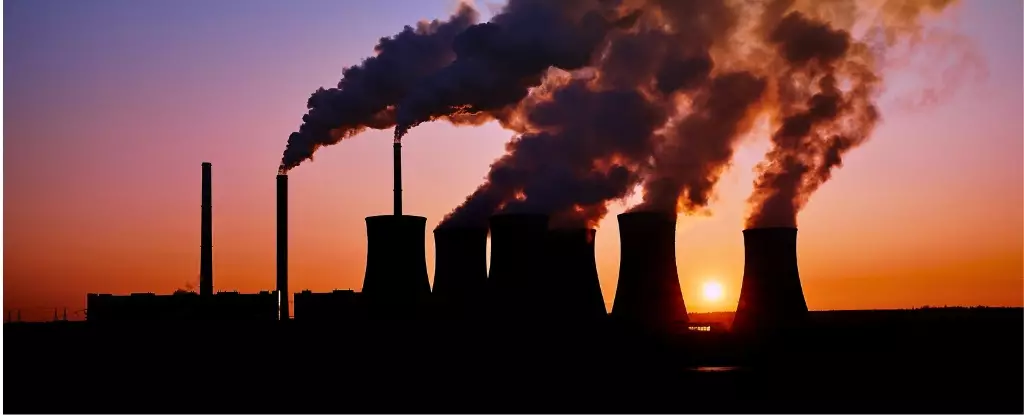Recent research has cast a glaring spotlight on a troubling reality: global temperatures have likely breached the critical threshold of 1.5°C above pre-industrial levels. Two independent studies reveal a worrying trend, suggesting that Earth’s climate may have entered a dangerous new era, one that could unleash severe and irreversible consequences for both the environment and humanity. This pivotal moment demands immediate attention and action if we hope to avert the calamities predicted by climate scientists.
The Paris Agreement, signed in 2015, set forth an ambitious goal for the international community: to limit global warming to well below 2°C, with an aspiration of not exceeding 1.5°C. However, as 2024 soared to unprecedented warmth—at 1.6°C above late-19th-century averages—scientists are sounding alarms about the future. While there are complex factors at play in climate data, including year-to-year variations, analysts assert that the recent surge in temperatures signals a long-term trend of escalating warmth.
The studies conducted by European and Canadian researchers tackle a pressing question: is a single year above the 1.5°C mark indicative of broader climate patterns? By examining historical warming trends, the European study projects that if we recently hit a temperature threshold, future decades are likely to see sustained periods of warming. This indicates that we may have inadvertently entered a 20-year warming cycle, priming the planet for continued high temperatures.
Simultaneously, the Canadian study took a monthly approach, noting that June marked the 12th consecutive month of temperatures surpassing the 1.5°C benchmark. This continuous elevation above the threshold flags a concerning signal: sustained periods of exceeding climate limits point toward a prolonged and troubling warming trajectory.
The Implications of Inaction
Despite the overwhelming need for change, humanity continues to release greenhouse gases at alarming rates. Since the Intergovernmental Panel on Climate Change (IPCC) unveiled its first report in 1990, global carbon dioxide emissions have inflated by nearly 50%. This upward trend in emissions contradicts the necessity for rapid and robust reductions to reach net-zero status—an essential goal to stabilize the climate. Even if extraordinary measures are initiated now, it may already be too late to reverse the damage, given that some climate consequences are presently irreversible.
Should we find ourselves beyond the 1.5°C threshold, a daunting obstacle awaits. Achieving “net-negative emissions,” whereby we extract more greenhouse gases from the atmosphere than we produce, will pioneer a new frontier in climate action. This ambitious endeavor will require innovative technology, a collective social awakening, and comprehensive policy shifts to mitigate the crisis.
The tangible repercussions of climate change are palpable around the globe. Australia serves as an acute example, having already experienced an average temperature increase of 1.5°C since 1910. The warming is inflicting stress on unique ecosystems, with the Great Barrier Reef—an ecological treasure—showing signs of distress.
Beyond the Australian coastlines, rising sea levels and intensifying heatwaves punish communities worldwide, threatening both marine life and human existence. The frequency of extreme weather events now underscores a broader narrative: our natural systems are faltering under the strain of climate change, placing pressure on social, economic, and environmental fabrics alike.
On the flip side, despite dire warnings, there are signs of hope. Progress is being made in renewable energy; many countries are witnessing a decline in fossil fuel dependency. Innovation is blooming across various sectors, including aviation and construction, demonstrating that we can still make strides toward reducing emissions and fostering sustainability.
However, complacency is a significant barrier to progress. While advancements are commendable, they must be outpaced by urgent, systemic change. Wealthy nations carry the moral responsibility to support less affluent countries that disproportionately bear the brunt of climate change effects. A comprehensive approach to global decarbonization is crucial if we hope to mitigate future damages.
As the pathway forward becomes increasingly fraught with challenges, the latest studies act as a clarion call for humanity. We cannot afford to linger in indecision or delay action against climate change. The time for sweeping reforms and committed action is now—our planet’s future hangs in the balance. If we are to steer away from irrevocable harm, a united front is necessary to confront the climate crisis effectively and sustainably. Without immediate and collaborative effort, we risk not only our own wellbeing but that of future generations, as the reality of a changing climate continues to unfold.

Leave a Reply